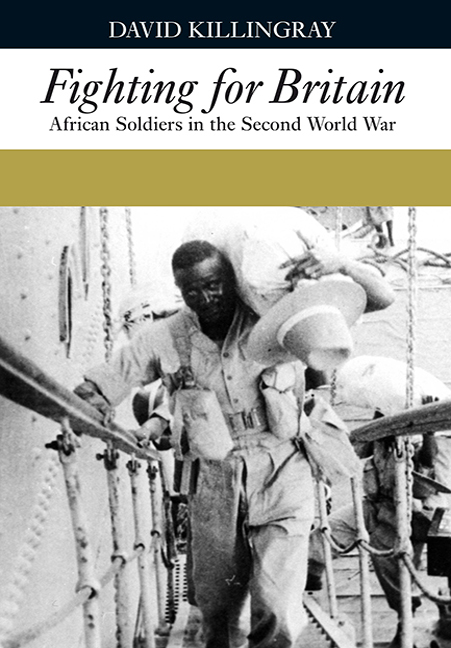Book contents
4 - Indiscipline, Strike & Mutiny
Published online by Cambridge University Press: 13 April 2017
Summary
Diégo Suarez, December 1943
The men of the 1st Infantry Battalion, Mauritius Regiment, who landed at Diégo Suarez as part of the Madagascar invasion force on 20 December 1943 were already deeply dissatisfied. The week-long voyage had been stormy and most of the soldiers had been very seasick. There was widespread and deep resentment at the racial discrimination within Mauritian forces, which were segregated into white and non-white units. Whites were primarily combatants and paid more than non-whites who were mainly employed as military labour. All officers were white, a mixture of upper-class francophone and anglophone Mauritians, and all attempts by non-whites to gain a commission had been rebuffed. And for many of the recruits in the 1,000-strong regiment that went ashore there was a double sense of betrayal: they had been enlisted for service only in Mauritius and were now being sent abroad, while no white units had been sent overseas. This rankled deeply. An added and deep anxiety was for the welfare of the womenfolk back home, now subject to the attentions of the Nyasaland troops of 17 KAR, who had recently arrived to garrison Mauritius.
John Harrison, then a lieutenant in the British Army but later a distinguished social historian, remembers that the Mauritian troops ‘landed on the quay at Diégo Suarez late in the morning, when the sun was at its hottest, and had to parade there in full kit for over an hour. Some fell down from sheer exhaustion and were insulted by their Anglo-Mauritian officers.’ Lt-Col Jimmy Yates, a regular officer, refused transport and decided that his men should march the 12 miles to the camp at Orangea. Harrison continues: ‘The march was a disaster, as the troops were in no fit state and kept falling down on the road or in the ditch. Witnesses said later that at least one Anglo-Mauritian officer kicked the men while ordering them to get up.’ At Orangea the tented camp in a forested area was poorly cleared and prepared. One man set fire to ‘a bit of the forest, the fire spread and half the camp was destroyed before the fire was brought under control’. The final breaking point came over an apparently insignificant event the next morning. Company commanders ordered physical training at 6.30am. The battalion baulked, some soldiers refusing to assemble while others staged a sit-down strike on the parade ground.
- Type
- Chapter
- Information
- Fighting for BritainAfrican Soldiers in the Second World War, pp. 121 - 140Publisher: Boydell & BrewerPrint publication year: 2010



